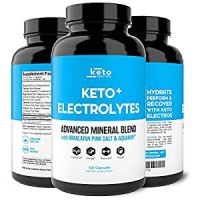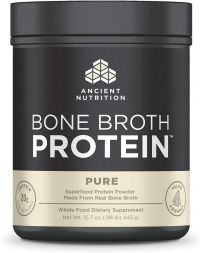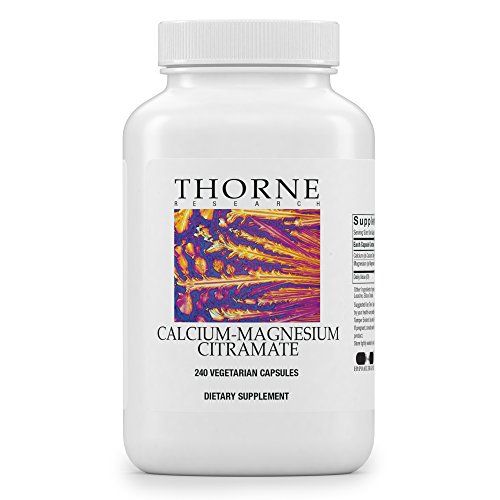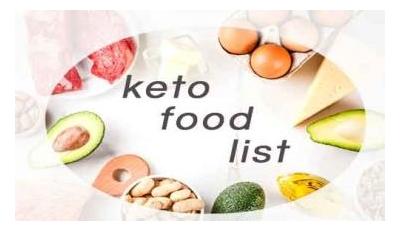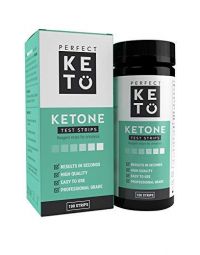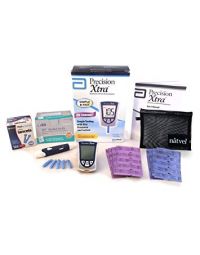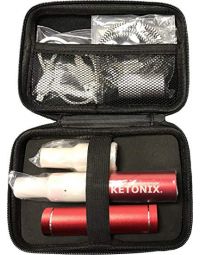Because of dietary changes and increased water loss, your body may run low on electrolytes when you begin a ketogenic diet. This can cause some of the symptoms associated with “keto flu.” Getting more electrolytes into your system is a great way to help manage keto flu and keep your body healthy while on the diet.
” The Keto diet has a diuretic effect, and some early weight loss is due to water weight loss followed by a fat loss. Interestingly with this diet plan, lean body muscle is largely spared." (NIH.gov)
” The Keto diet has a diuretic effect, and some early weight loss is due to water weight loss followed by a fat loss. Interestingly with this diet plan, lean body muscle is largely spared." (NIH.gov)

Why Electrolytes in Ketosis
As your blood glucose drops when you begin this very low-carb diet, so does your blood insulin level. When this happens, your body starts excreting more water. In fact, increased frequency of urination is one of the common symptoms of “keto flu” that happens during the first few days on the diet. As your body passes this water, it also loses the electrolytes that are dissolved in it, particularly sodium (a component of salt).1
These electrolytes are important for the nerves in your body to work properly. Low levels of electrolytes can give you headaches and muscle cramps. To stay healthy, you need to make sure your body maintains the levels of electrolytes needed for optimal nerve function.

Drink Plenty of Water
As your body is excreting extra water, the best way to make up for this is by drinking more water during the day. The general recommendation from the medical community is to drink at least eight 8-oz glasses of water every day.2 You may need to drink even more than that to stay healthy on the keto diet, especially if you are doing vigorous exercise.
A good rule of thumb is to drink a full glass of water every time you start to feel thirsty. Drink water every 15-20 minutes while exercising if possible.3 Other fluids like milk, tea, or kombucha can help too but go for caffeine-free beverages that won’t cause you to urinate even more.
As your body is excreting extra water, the best way to make up for this is by drinking more water during the day. The general recommendation from the medical community is to drink at least eight 8-oz glasses of water every day.2 You may need to drink even more than that to stay healthy on the keto diet, especially if you are doing vigorous exercise.
A good rule of thumb is to drink a full glass of water every time you start to feel thirsty. Drink water every 15-20 minutes while exercising if possible.3 Other fluids like milk, tea, or kombucha can help too but go for caffeine-free beverages that won’t cause you to urinate even more.

Drink Salt Water and Broths
Sodium is the predominant electrolyte that you lose during ketosis and exercise-induced dehydration. You can supplement your drinking water with sodium and other electrolytes to boost your intake.4 Try mixing half a teaspoon of salt into an 8-ounce glass of water and drinking it. Sports drinks like Gatorade can be another good option, but many contain sugars and other carbohydrates and should be avoided. Some sports nutrients brands also sell electrolyte mixes that you can add to water or another beverage of your choice.
For a more hearty flavor, broths and bouillons such as bone broth or vegetable stock are good alternatives. These can be supplemented with a spoonful of salted butter if you wish.
Sodium is the predominant electrolyte that you lose during ketosis and exercise-induced dehydration. You can supplement your drinking water with sodium and other electrolytes to boost your intake.4 Try mixing half a teaspoon of salt into an 8-ounce glass of water and drinking it. Sports drinks like Gatorade can be another good option, but many contain sugars and other carbohydrates and should be avoided. Some sports nutrients brands also sell electrolyte mixes that you can add to water or another beverage of your choice.
For a more hearty flavor, broths and bouillons such as bone broth or vegetable stock are good alternatives. These can be supplemented with a spoonful of salted butter if you wish.

Fruits, vegetables, legumes, and whole grains are major sources of many vitamins and minerals in a typical diet. When these are cut out, you can develop a mineral deficiency if you don’t get them from other sources. Magnesium, in particular, is often low in people on long-term ketogenic diets.5 Low magnesium can contribute to some keto flu symptoms, like muscle cramps and poor concentration.
The recommended daily intake of magnesium is 400mg for younger men and 420mg for men over the age of 30. Younger women should consume at least 310mg magnesium each day, then 320mg each day after the age of 30. Fortunately, magnesium can be obtained through seafood, a nutrient-rich, keto-friendly type of food.6 Alternatively, you can take a magnesium supplement or multivitamin that contains magnesium.
[1] Veech RL. 2004. “The therapeutic implications of ketone bodies: the effects of ketone bodies in pathological conditions: ketosis, ketogenic diet, redox states, insulin resistance, and mitochondrial metabolism.” Prostaglandins Leukot Essent Fatty Acids. Mar; 70(3):309-319. https://www.ncbi.nlm.nih.gov/pubmed/14769489
[2] Mayo Clinic. September 6, 2017. “Water: How much should you drink every day?” Healthy Lifestyle: Nutrition and healthy eating. https://www.mayoclinic.org/healthy-lifestyle/nutrition-and-healthy-eating/in-depth/water/art-20044256
[3] Evans GH, James LJ, Shirreffs SM, Maughan RJ. 2017. “Optimizing the restoration and maintenance of fluid balance after exercise-induced dehydration.” J Applied Physiol. Apr 1; 122(4):945-951. https://www.physiology.org/doi/full/10.1152/japplphysiol.00745.2016?url_ver=Z39.88-2003&rfr_id=ori%3Arid%3Acrossref.org&rfr_dat=cr_pub%3Dpubmed&
[4] Christodoulides SS, Neal EG, Fitzsimmons G, Chaffe HM, Jeanes YM, Aitkenhead H, Cross JH. 2012. “The effect of the classical and medium chain triglyceride ketogenic diet on vitamin and mineral levels.” J Hum Nutr Diet. Feb; 25(1):16-26. https://www.ncbi.nlm.nih.gov/pubmed/21615805
[5] Dieticians of Canada. “Food Sources of Magnesium.” https://www.dietitians.ca/Downloads/Factsheets/Food-Sources-of-Magnesium.aspx
-
Supplements for Ketogenic Diet
By Dr. KarenAugust 14, 2022 -
How to Know if You are in Ketosis
By Dr. AnnaDecember 20, 2021 -
Keto Diet for Beginners
By Dr. AnnaAugust 14, 2022 -
Keto Diet Food List
By Dr. AnnaAugust 14, 2022
Search the blog
Article Categories
- All Articles (95)
- Rating Charts (1)
- Beauty & Skincare (17)
- FAQ (0)
- Hair Care (9)
- Health & Wellness (12)
- Anti-Aging (4)
- Kid's Health (0)
- Makeup (2)
- Men's Health (2)
- Oral Care (3)
- Sunscreen (7)
- Skin Tools & Treatments (10)
- Supplements (26)
- Videos (0)

